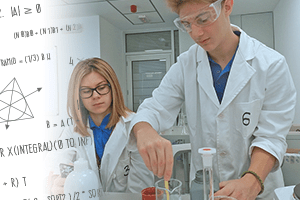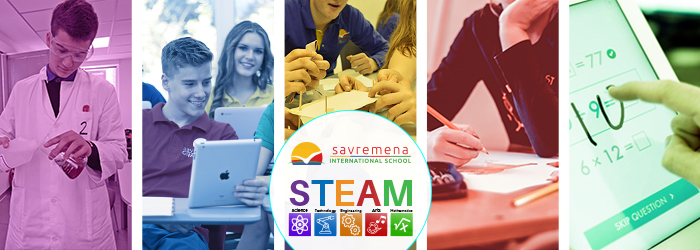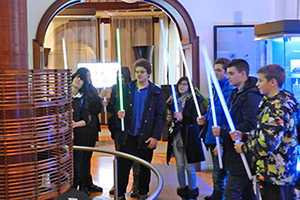STEAM disciplines guarantee wide-ranging success
STEAM is an acronym referring to the academic disciplines of Science, Technology, Engineering, Arts and Mathematics.
The term is typically used when addressing the education policy and curriculum choices aiming to improve the competitiveness in scientific, artistic and technological development.
Focus on natural sciences and liberal arts
 With regard to education, the introduction of STEAM subjects into curricula has garnered fervent support from various institutions and prominent voices in the fields of both education and science.
With regard to education, the introduction of STEAM subjects into curricula has garnered fervent support from various institutions and prominent voices in the fields of both education and science.
According to a great number of educational scientists, STEAM skills should not be explored independently or in isolation as a separate group of subjects but rather implemented across the board, in all schools, regardless of the dominant educational profile students have opted for.
One of the main differences that truly sets STEAM schools apart is the fact that they have fully integrated both natural sciences and liberal arts into their educational programmes.
STEAM is the key for success in any field
Regardless of the academic aspirations or career a student chooses to pursue, STEAM subjects will enable them to stand out in the job market despite its evolving nature and ever-growing list of demands. Through the study of natural sciences, a student specialising in the humanities is able to acquire a more precise, systematic and methodical disposition.
With the rapid introduction of various IT tools into our daily routine, it is by no means a stretch to imply that in the near future, we will not be able to buy so much as a bus ticket without using some form of basic IT knowledge. Countless such examples have prompted scientists to emphasise the importance of STEAM skills and the necessity for modern schools to introduce such subjects into their curricula so that they are available to everyone.
A promising future for STEAM-field experts
 The importance of the STEAM disciplines is reflected in the myriad of initiatives by US associations and companies highlighting the importance of science, technology, engineering and mathematics not just for personal development but for the benefit of society as a whole.
The importance of the STEAM disciplines is reflected in the myriad of initiatives by US associations and companies highlighting the importance of science, technology, engineering and mathematics not just for personal development but for the benefit of society as a whole.
The statistics show that the employment rate of STEAM experts is tremendously high.
On the other hand, the need for developing the talent pool of high-tech professionals well versed in the STEAM disciplines has had a significant impact on immigration policies, granting visas to qualified individuals who are then able to prosper in the US and Europe.
STEAM professionals have already demonstrated that the field offers a promising future with frequent job and upward-mobility opportunities.
STEAM disciplines at Savremena Gimnazija
Savremena Gimnazija strives to provide an education that meets both student needs and the demands of the job market. The advanced Future Ready and Intelligent Classroom concepts enable our school to successfully integrate STEAM subjects into the curriculum. As you may have noticed, Savremena doesn’t have departments in the conventional sense whereby humanities or natural sciences assume a dominant role.
Our school offers a number of educational programmes which follow an integrated curriculum that uniformly implements STEAM subjects across the board. That is the essence of a high-quality STEAM-based education which is exactly what our school provides.
In addition to high-quality competencies, the STEAM approach continuously raises the bar in terms of the spatial, design and technological capacities educational institutions need to develop in order to successfully meet STEAM standards.
Savremena’s infrastructure supports the STEAM concept
Aiming to provide the optimal conditions for a STEAM-based education, Savremena Gimnazija offers the following:
- an adequate space and carefully designed classrooms which enable students to successfully complete tasks, present their projects and receive a dynamic and interactive education;
- a high degree of flexibility when it comes to group sizes and communication channels with the objective of facilitating comprehensive and multidisciplinary learning;
- an elaborate IT infrastructure and the technological conditions necessary for the easy and efficient acquisition of practical knowledge;
- highly-qualified teachers who train students to use modern technologies along with various kinds of software and applications as effective tools in their quest for information.




















